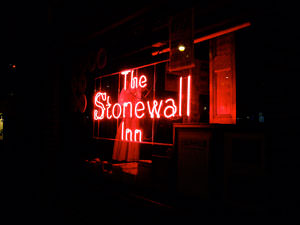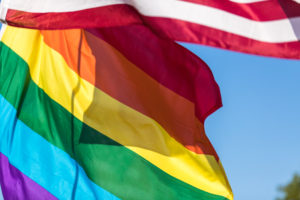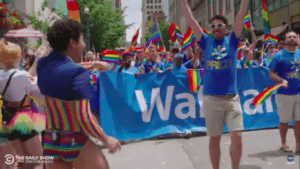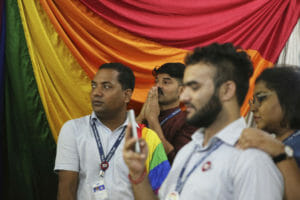What Was Stonewall?
The Stonewall riots of 1969 have been mythologized almost beyond recognition, writes LGBTQ historian Michael Bronski. But it's safe to say, "something extraordinary happened."
The Stonewall riots of 1969 have been mythologized almost beyond recognition, writes LGBTQ historian Michael Bronski. But it’s safe to say, “something extraordinary happened.”
Although the riots, which were triggered by a routine police raid on a gay bar in New York’s Greenwich Village, are often described as the beginning of the gay liberation movement, Bronski points out that the Mattachine Society was founded almost three decades earlier. Other homophile groups would follow and lay the groundwork for Stonewall, which some of Bronski’s students misunderstand as either a party or a massacre.
Although within weeks of the event I would become very involved in the new gay liberation movement, Stonewall did not mean much to me at the time. Nor, I must say, does it mean a whole lot to me now. At Dartmouth College in March of 2009 – where I teach courses that include Introduction to Gay, Lesbian, Bisexual and Transgender Studies – I found myself spending an entire class trying to get students to attach less importance to the Stonewall riots and to see them in perspective.
It’s not so easy. Some students think Stonewall was simply the first gay pride parade, with floats and an afterparty. (I’m not sure why they think the word “riot” is included.) Others imagine full-scale street fighting, and once a student asked me how many gay people died at the Stonewall Inn. Their more informed classmates understand the relatively small scale of the event but presume that its reverberations were felt immediately – the high-pitched scream heard around the world.
It’s also important to view Stonewall in the context of other liberation movements in the 1960s, Bronski argues.
The gay liberation movement was not made up of non-profit groups raising funds and lobbying to enact laws. It was a grassroots movement, a groundswell of women and men who had reached the breaking point. The first major gay activist group to form after Stonewall was the Gay Liberation Front – a name borrowed from the Woman’s Liberation Front, which in turn borrowed it from the Vietnamese National Liberation Front, which claimed the spirit and moniker of the Algerian National Liberation Front, which fought French domination in Northern Africa. The phrase “Gay is good” was derived from “Black is beautiful.” Gay power emerged naturally from black power.
It wasn’t that we were copying other movements but that we saw ourselves as part of a broader struggle. Gay liberation was possible because the whole culture was being transformed and transfigured.
The whole piece is fascinating and worth a read. Also, you can listen to an interview with Michael Bronski on last week’s Truthdig Radio below.
— Posted by Peter Z. Scheer.
Your support matters…Independent journalism is under threat and overshadowed by heavily funded mainstream media.
You can help level the playing field. Become a member.
Your tax-deductible contribution keeps us digging beneath the headlines to give you thought-provoking, investigative reporting and analysis that unearths what's really happening- without compromise.
Give today to support our courageous, independent journalists.





You need to be a supporter to comment.
There are currently no responses to this article.
Be the first to respond.